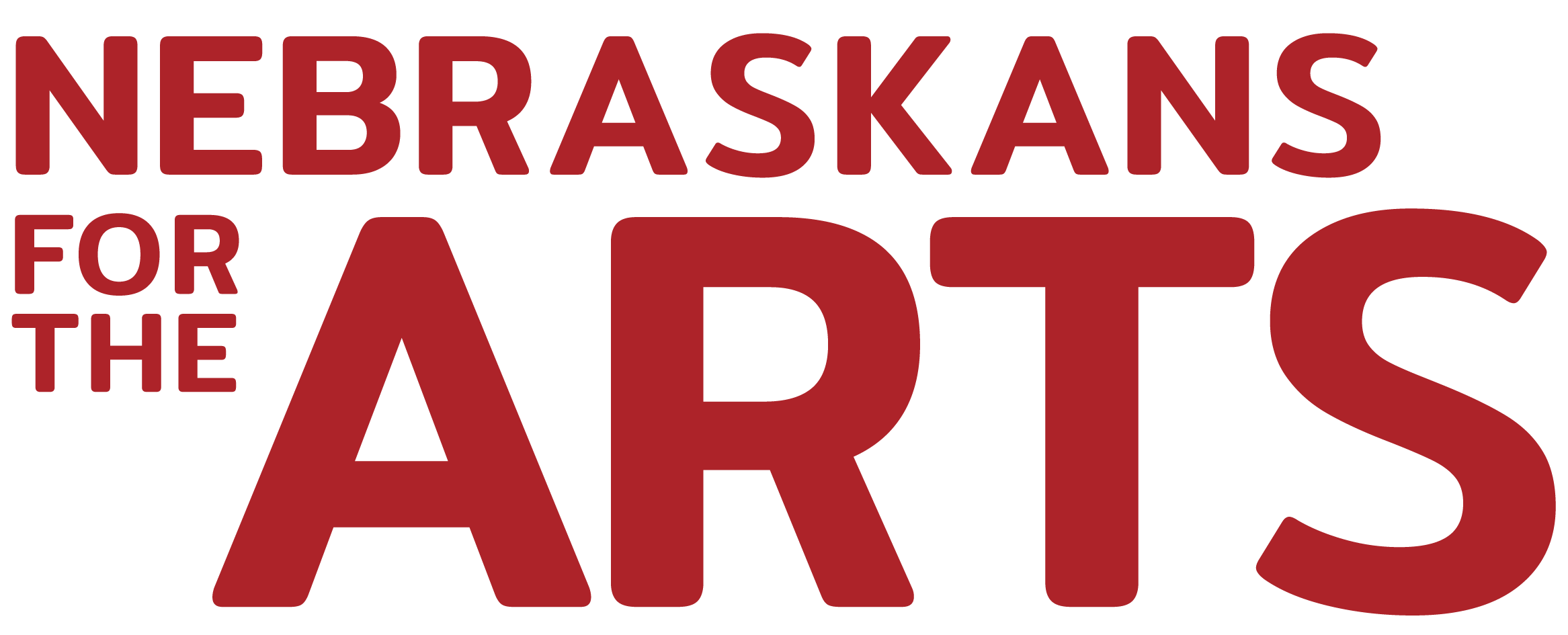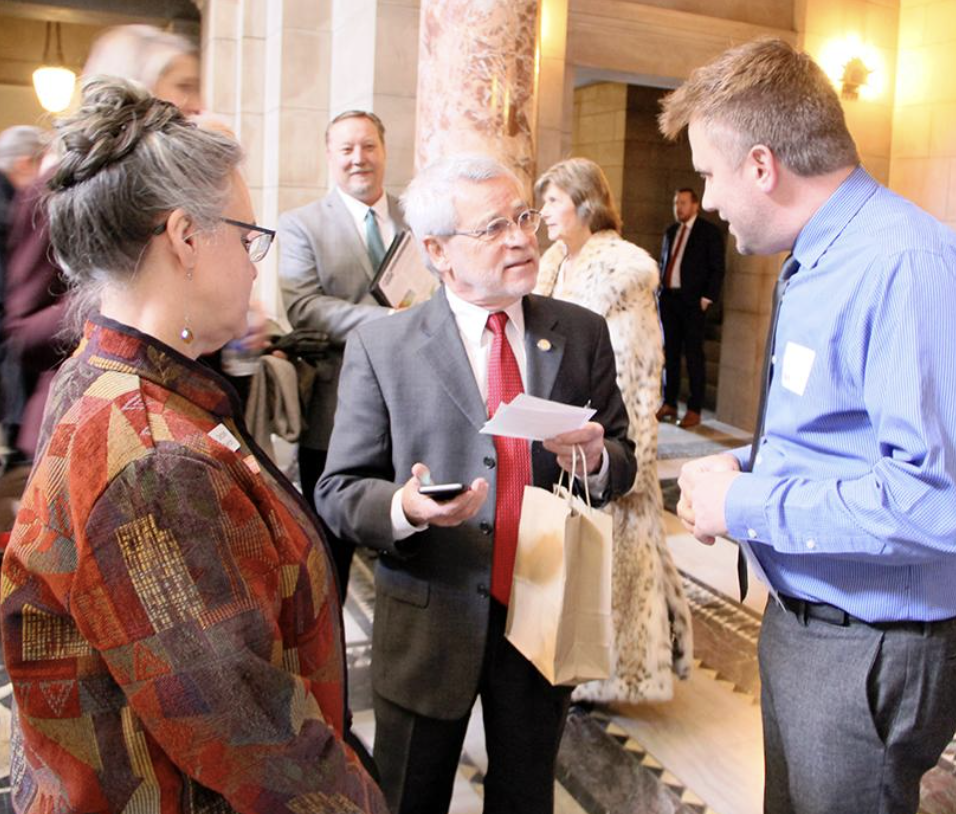Advocacy 101 – The Storyteller
This month, the Nebraskans for the Arts will be hosting the 2024 Arts Advocacy Day at the Nebraska State Capitol. If you have not advocated with policymakers before, it can sometimes feel a little intimidating at first. The heart of advocacy is the ability to tell stories. That is what we do as artists; we tell stories of the human condition and the world around us visually through canvas or clay, musically through sound, or acting on a stage. Advocacy is an opportunity for us to tell our story of why the arts are important to us and our communities. Advocacy is educating others on the power of the arts and why it is important for a civilized society.
Advocacy can be done in many different ways. You may email, send a letter, or post a social media response. It may be a virtual or in-person meeting or attending a town hall meeting to ask questions. Become a part of a larger network of arts advocates because there is power in numbers.
Jay Dick, Senior Director of State and Local Government Affairs of Americans for the Arts, provided the following basic tips on a recent Advocacy Webinar. Consider these tips when planning an advocacy meeting with an elected official.
- Get to know your elected officials and their staff and find out which people are already supportive of the arts or who may need more background information about your cause.
- Expand and reach out to allies and coalitions. The message is stronger when there is a coalition of people saying the same thing. Advocacy groups will also help craft the overall message.
- Lead with your story and compliment with local data points about the impact of the arts on social structures and economic prosperity.
- A successful advocacy meeting has a unified message or strategy. It is important to have specific and clear “asks” and keep your main points to no more than three.
- Never assume you know the policymaker or elected officials position so it is okay to ask. They may ask questions of you that you do not have an answer to. Do not try to make something up, it is okay to say ‘I will get back to you later with an answer to your question’.
- Be your authentic self! Your passion for the arts will show and make an impact.
- Finally, always follow up with a thank you, offer to be a resource or expert on the arts, and invite them to arts events in your community throughout the year.
How do we advocate for the arts in a polarized political climate? First, it is important to remember it is about policy, not personality. It is not partisan to want to support the arts in order to make better communities. Jay Dick shared this analogy, “You can’t spell bipartisan without ART”. Second, the arts also support a variety of other issues including Education, Economic Growth, Community Vibrance, Veteran’s Health, and Youth Suicide. Find out what your senator is passionate about and make the connections of the arts to their focus. Finally, be professional and build positive relationships with elected officials and their staff.
It is important to be involved in this work of arts advocacy because elected officials need to hear from us. We are the experts in the field and if we don’t educate and inform policy and elected officials, who will? Even during the times when things might seem to be okay, that is when we need to be present. It is time to tell your story of the importance of the arts in Nebraska!



